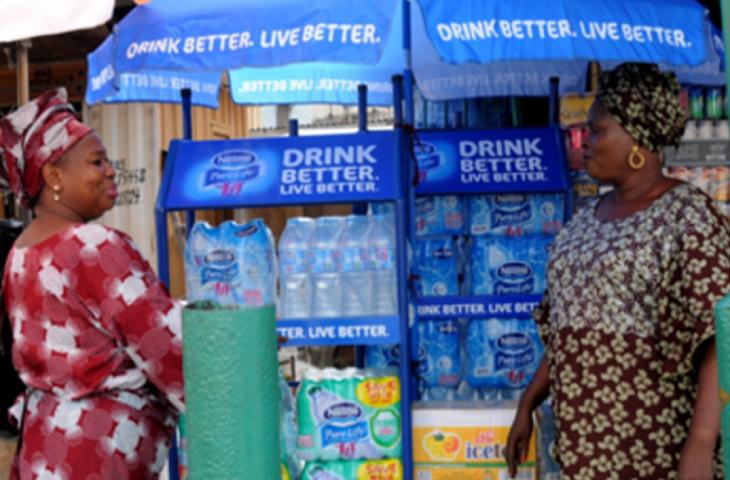ABAJI (NIGERIA) - Last 14 April, Marco Settembri, Executive Vice President Nestlé S.A. and CEO of Nestlé Waters, inaugurated a new plant for production in Abaji, Nigeria, together with Dharnesh Gordhon, CEO of Nestlé Nigeria and professor Yemi Osinbajo, Vice President of the Federal Republic of Nigeria.
The new bottling plant
The factory of Abaji is an investment of approximately 5.6 billion naira (25 million Swiss francs), and will create 111 new jobs and bottle up Nestlé Pure Life, one of the most popular trademarks of bottled water in the world. It will be one of the most modern systems in Western and Central Africa, with an extension equal to 14.6 hectares and will host a technical training centre to improve the skills of young engineers. To Nestlé, the implementation of the plant is part of a program aimed at strengthening its presence in the markets of sub-Saharan Africa. The Swiss group, which recorded a turnover of 19.2 billion euro in the first quarter of 2016, has indicated that Africa, together with Europe and Southern Asia, is the region in which they have reported a higher growth.
Support of local community
Nestlé undertakes to collaborate with the local communities in which they operate to create opportunities to improve life conditions. Nestlé Waters engage in various programs of water stewardship to ensure the sustainability of aquifers and increase awareness in matter of access to water and conservation of the resource. Through WET Project (Water Education for Teachers), they help teachers to raise awareness on issues related to water and the correct hydration between children and their family. In Nigeria, this project involved 6,000 students in 115 schools in Lagos and Osun. The commitment will be expanded, also thanks to the new factory, also to the town of Abaji, where 25 schools, 100 teachers and 2,500 pupils will be involved.
di Salvatore Galeone











